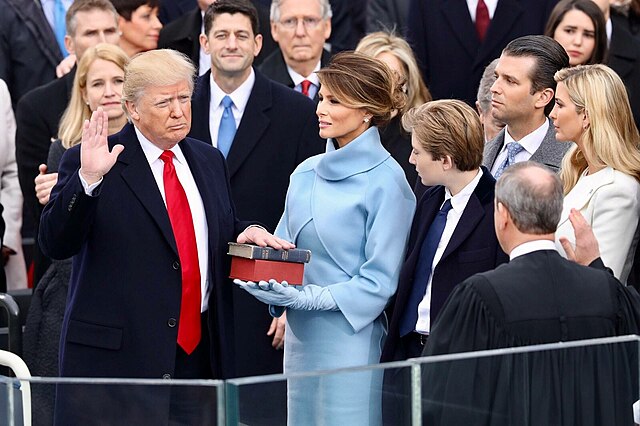I can’t say I was excited for the 2020 Iowa Caucuses, but I was looking forward to them — mostly because I figured the caucuses would be the beginning of the end of a primary that has seemingly dragged on forever. Unfortunately, the Iowa Caucuses seem to have accomplished the opposite, with the primary becoming more contentious and complicated since last Monday. What was supposed to be a clarifying moment in the primary only added to the dysfunction.
The Democratic Party commissioned a new app, Shadow, to tally caucus votes and send the data to the state party. However, due to inadequate beta-testing, coding errors and little preparation on the part of the party, the app malfunctioned and only reported partial data to the Iowa Democratic Party on the night of the caucuses. When the results — which show Mayor Pete Buttigieg in first followed closely by Senator Bernie Sanders — came later in the week, they further divided an already-divided party and led some on the left, especially supporters of Sanders, to call the results illegitimate.
Now, while I haven’t seen any evidence suggesting illegitimate results, I find the outcome of the caucuses utterly useless. Even the Associated Press declared itself “unable to declare a winner.” Between the divisive State of the Union address on Tuesday and the Senate’s acquittal of Trump on Wednesday, the Iowa Caucuses extending past Monday night ensured the caucuses would dissolve in the overall mayhem of the week, their importance negated.
2020 will be one of the most important elections in American history: the Republican Party has genuflected to Donald Trump, throwing out any past positions and bipartisan norms for whatever @RealDonaldTrump tweets that day. The Democratic Party, in the American two-party system, is the only viable alternative at this moment. Yet, while facing such consequential stakes, the Democratic National Committee (DNC) failed its voters in an easily-avoidable situation, eroding trust in the Democratic Party at a time when the party needs all the support it can get. In all fairness to the DNC, however, its members are not the only ones who have contributed to the increasingly terrible politics in America.
In “After Iowa,” Bulwark columnist Jonathan V. Last writes that “the overarching theme [of the last twenty years] has been the failure of institutions that were designed to protect the public.” I am inclined to agree. Our extreme political dysfunction and polarization comes from abject, across-the-board structural failure, with institution after institution deteriorating due to incompetence, detachment, corruption, outright malice or, frequently, all of the above. In a time when not one political or cultural institution is spared from systemic failure — not the legislature, not the Supreme Court, not academia, not even Hollywood — we, the public, are forced to respond. We think, maybe, if the people in charge were lying about weapons of mass destruction and if the so-called experts were clueless about the financial crisis, they’re wrong about other calls, too; and then we think maybe essential oils and crystals really are better than the doctor’s office, maybe vaccines really do cause cancer, maybe the moon landing really was faked and if someone disagrees with this new consensus, they’re not only wrong, but part of the incompetence, detachment, corruption and yes outright malice of the old.
Really, what we’re doing is forming quasi-institutions constructed by amateurs on unsteady foundations, undirected by experienced leaders or moral philosophy and untempered by the moderating force of time. In the short run, these are shaky, inadequate substitutes for what we lack in the United States; in the long run, these new institutions are not built to stand.
It’s true, the Iowa debacle fed into this chaos, leaving the public with one more process that has failed us, one more institution the American people can’t trust. The Democratic Party could reject everything that led to Iowa and start anew. Voters could choose the eventual nominee in a nationwide primary — but that would be even more polarizing, the eventual nominee likely winning a plurality of the votes as opposed to an outright majority as the field would never get smaller. The primary process could begin with a different state, especially in light of Iowa’s demographic homogeneity — but this leaves the Democratic Party with the same problems in a different state. Those of us who are registered Democrats could fight to replace the entire Democratic leadership — but then we would not only throw out the blundering staffers but the competent leaders who know how to accomplish national goals, leaving an incohesive, unestablished DNC in the hands of entirely new, potentially-unvetted people.
As attractive as calls to “burn it all down” seem, there is no viable alternative but rebuilding what’s broken with boring, structural reform that is honest about how we got here and how we can reasonably fix what we need to fix. The cultural anarchy wreaking havoc on twenty-first century America does not end with some political saviour swooping down to rescue us all, as appealing as that sounds; it ends with the American public once again choosing to believe in the processes and institutions that have sustained us throughout history, which means those processes and institutions must prove to us that they are worthy of our trust.
America cannot survive, let alone thrive, as a nation of people lacking faith in ourselves and hope for our future. So, returning to Iowa, my plea to the Democratic Party is this: step up to the massive task at hand and give voters a reason to believe in you.



